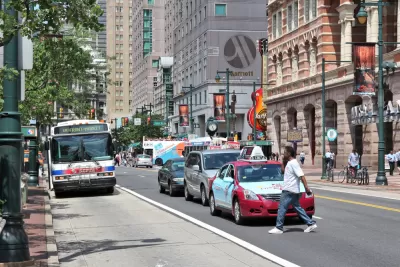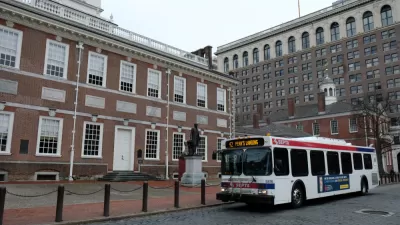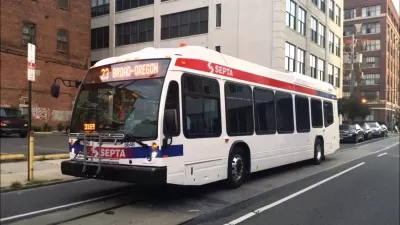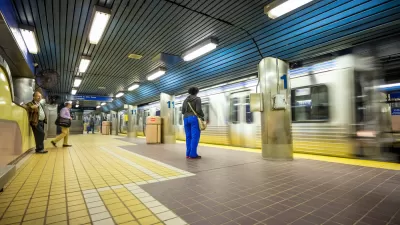By staying conspicuously absent from the controversy over the closure of the Somerset El station, the mayor has avoided involvement in an issue that affects the whole city, according to Philadelphia's leading architecture critic.

Writing in the Philadelphia Inquirer, Inga Saffron argues that Mayor Jim Kenney's absence from public discussion about the recent closure of a SEPTA station is a "failure of leadership" from the city's highest elected official.
Last Tuesday, a crowd of residents marched to protest the closure of the Somerset El station. "Even though more than a week had passed since PlanPhilly broke the news of SEPTA’s plans, the mayor had yet to utter a word publicly about the loss of a busy station on the region’s most-used transit line — in a neighborhood that is home to the health aides, restaurant workers, and janitors who have helped Philadelphia get through the pandemic." Residents claim that the decision to close the station was sudden and "unilateral," with no set timeline for when the project will be completed.
The closure, Saffron writes, is an issue for the entire city. "Losing even a single station on the Market-Frankford Line weakens the entire network, which gets 80% of its ridership from Philadelphia." The "fluid timeline" is also concerning, as "temporary transit closures have a way of becoming permanent."
"It’s worth noting that SEPTA recently reopened its Chestnut Hill West Regional Rail Line, which was closed early in the pandemic, in response to pressure from the affluent northwest of the city. That entire line had an average weekday ridership of 543 in March, according to a SEPTA spokesman. Meanwhile, 800 people a day were using the Somerset Station in the same period, down from a pre-pandemic total of 1,900." The city's mayor, argues Saffron, should get involved to ensure that none of the city's neighborhoods get left behind. "In these dark and difficult times, we need a mayor to be an advocate for the whole city, someone who will console us and offer us hope."

Planetizen Federal Action Tracker
A weekly monitor of how Trump’s orders and actions are impacting planners and planning in America.

Map: Where Senate Republicans Want to Sell Your Public Lands
For public land advocates, the Senate Republicans’ proposal to sell millions of acres of public land in the West is “the biggest fight of their careers.”

Restaurant Patios Were a Pandemic Win — Why Were They so Hard to Keep?
Social distancing requirements and changes in travel patterns prompted cities to pilot new uses for street and sidewalk space. Then it got complicated.

Platform Pilsner: Vancouver Transit Agency Releases... a Beer?
TransLink will receive a portion of every sale of the four-pack.

Toronto Weighs Cheaper Transit, Parking Hikes for Major Events
Special event rates would take effect during large festivals, sports games and concerts to ‘discourage driving, manage congestion and free up space for transit.”

Berlin to Consider Car-Free Zone Larger Than Manhattan
The area bound by the 22-mile Ringbahn would still allow 12 uses of a private automobile per year per person, and several other exemptions.
Urban Design for Planners 1: Software Tools
This six-course series explores essential urban design concepts using open source software and equips planners with the tools they need to participate fully in the urban design process.
Planning for Universal Design
Learn the tools for implementing Universal Design in planning regulations.
Heyer Gruel & Associates PA
JM Goldson LLC
Custer County Colorado
City of Camden Redevelopment Agency
City of Astoria
Transportation Research & Education Center (TREC) at Portland State University
Camden Redevelopment Agency
City of Claremont
Municipality of Princeton (NJ)





























